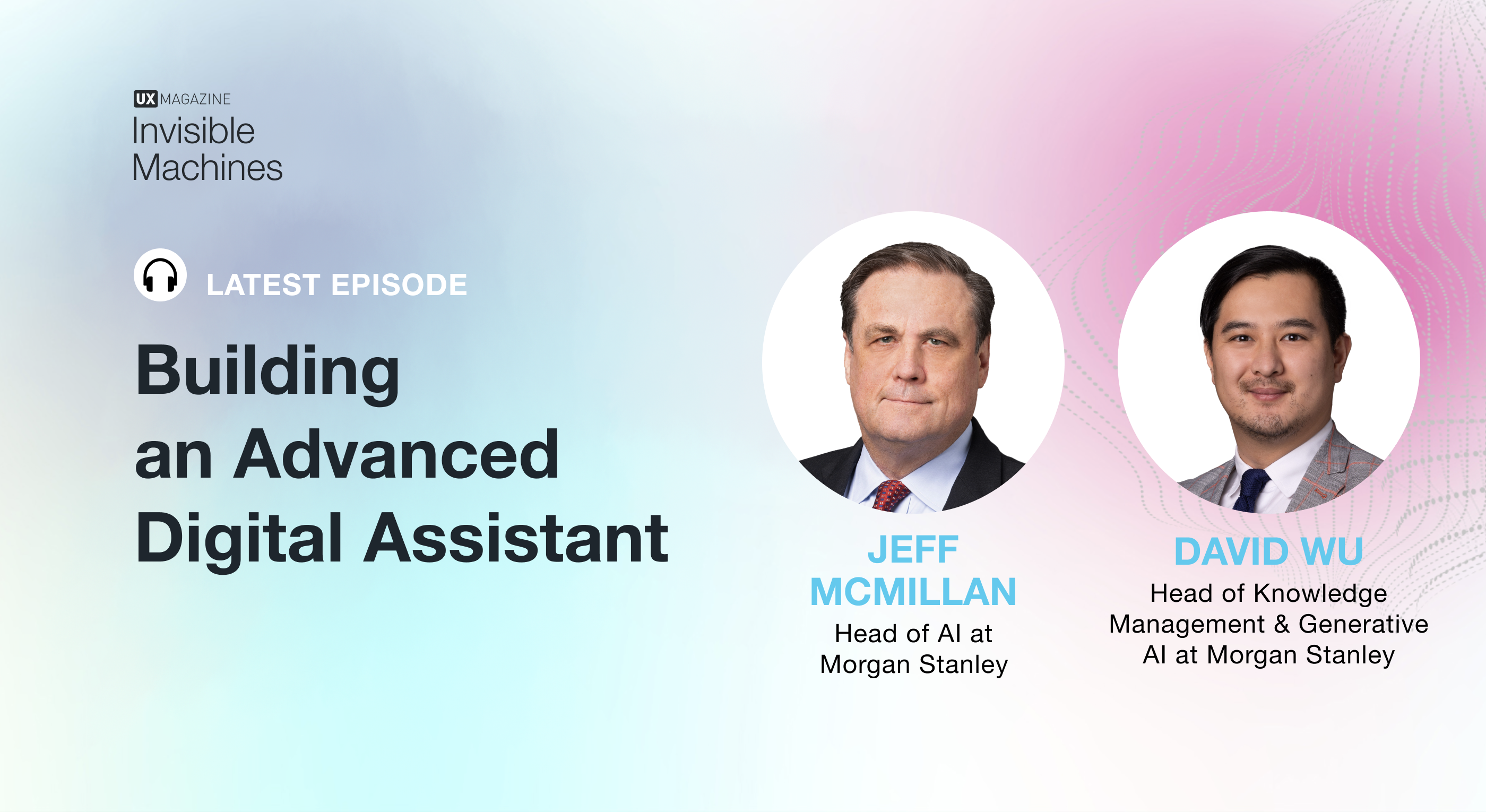Jeff McMillan and David Wu of Morgan Stanley join Robb and Josh for a deep dive into the technical work and strategic initiatives that allowed the global investment bank to create a knowledge base that’s allowing them to take a massive leap forward with conversational AI. As the Head of AI and the Head of Knowledge Management & Generative AI respectively, Jeff and David led the creation of an intelligent digital assistant that is making their advisors smarter and saving them time.
Partnering with OpenAI in the months before ChatGPT was released, Morgan Stanley was able to rebuild their existing content using generative AI and relational databases. This is a deep dive into the technical work and strategic planning required to leverage conversational AI in ways that become a force multiplier within an organization. Don’t miss this high-value episode of Invisible Machines.
Check out the episode here.








